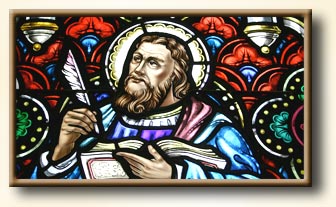|
“Do This”, commanded our Lord at the Last Supper; “Do This”, and “as oft as ye shall drink it”. How often has been a question which has long caused some confusion and difference of opinion among Christians.
Many Anglicans and Episcopalians, ever since the days of great Puritan influence in the Church of England in the 17th century, have been accustomed to attending the service of Mattins, or Morning Prayer, and/or Evensong, or Evening Prayer, instead of the Holy Communion. They have been accustomed to receiving the Holy Communion only at intervals of two weeks, or a month, or even less often. This primacy of Morning Prayer probably developed originally out of excessive reaction against “Romanism” and also because the Mass -- the old name for the Lord’s Supper, or Holy Communion, or Eucharist -- had become overly encrusted with elaborate ritual and with rather mysterious secret pronouncements and acts by the priest, to the point where it seemed almost a kind of hocus-pocus.
In this case however, over-reaction in the seventeenth century became error. Consider, first of all, that it was our Lord Himself who instituted the Holy Communion, directly and in so many words. It is His service, in which we receive His Body and Blood, and are thus united intimately and directly to Him. By and through this Sacrament, we receive a constant access of strength and grace from the Son of God. If anything in the practice of religion has and should have primacy, it must be this Sacrament, this Rite, this service, this Holy Liturgy. If anything has the power of God’s grace and favor, the power of salvation, it is this. If anything can give us comfort and joy and renewed faith and strength, it is this constant renewal in Jesus Christ at the altar.
The Church has always known and taught this, even though frequently lax in practicing what it taught! Morning and Even Prayer are beautiful Offices, but they are Offices, not Sacraments. They are designed for daily use; their very titles in the Book of Common Prayer show this, as do the daily readings from Scripture which are specified in that Book.
On the other hand, Holy Communion is equally clearly set forth by the Book Common Prayer as a service for each Sunday and each Holy day. Collects, Epistles and Gospels are provided and specified for every Sunday. Why should this be, if the Eucharist were not intended to be celebrated every Sunday and each Holy Day? Moreover, there is provision in the Communion liturgy for a sermon. By contrast, the Prayer Book makes no provision for a sermon in the Offices of Morning and Evening Prayer. These latter cannot, therefore, have been intended to be the principal services of the Lord’s Day. To whatever extent these Offices have become the only regular, or the principal, service of worship in some churches on Sunday, they have become so in over-reaction and in error.
Anglicans and Anglicanism need to regain the full force of their own convictions, need to rededicate themselves to regular and frequent celebration of and attendance upon the Holy Communion, the great mystery by which we reunite ourselves again and again in the most intimate possible way with our Lord, Jesus Christ. Secondary services of worship are not to be abandoned -- far from it, for they are of great beauty and value. But first things come first, and our Lord’s own service in undeniably first.
It is for these reasons that Anglican Churches, like all Apostolic and Holy Catholic Churches, teach and should practice the rule that:
“The Holy communion is the chief act of Christian worship. On the Lord’s Day and on every other day for which Collect, Epistle and Gospel are provided in the Book of Common Prayer, it shall be the duty of every priest…to see that this Sacrament is administered at the time and place at which the greater part of the congregation may conveniently attend”.
“Do this”, says our Lord across the centuries.
|



